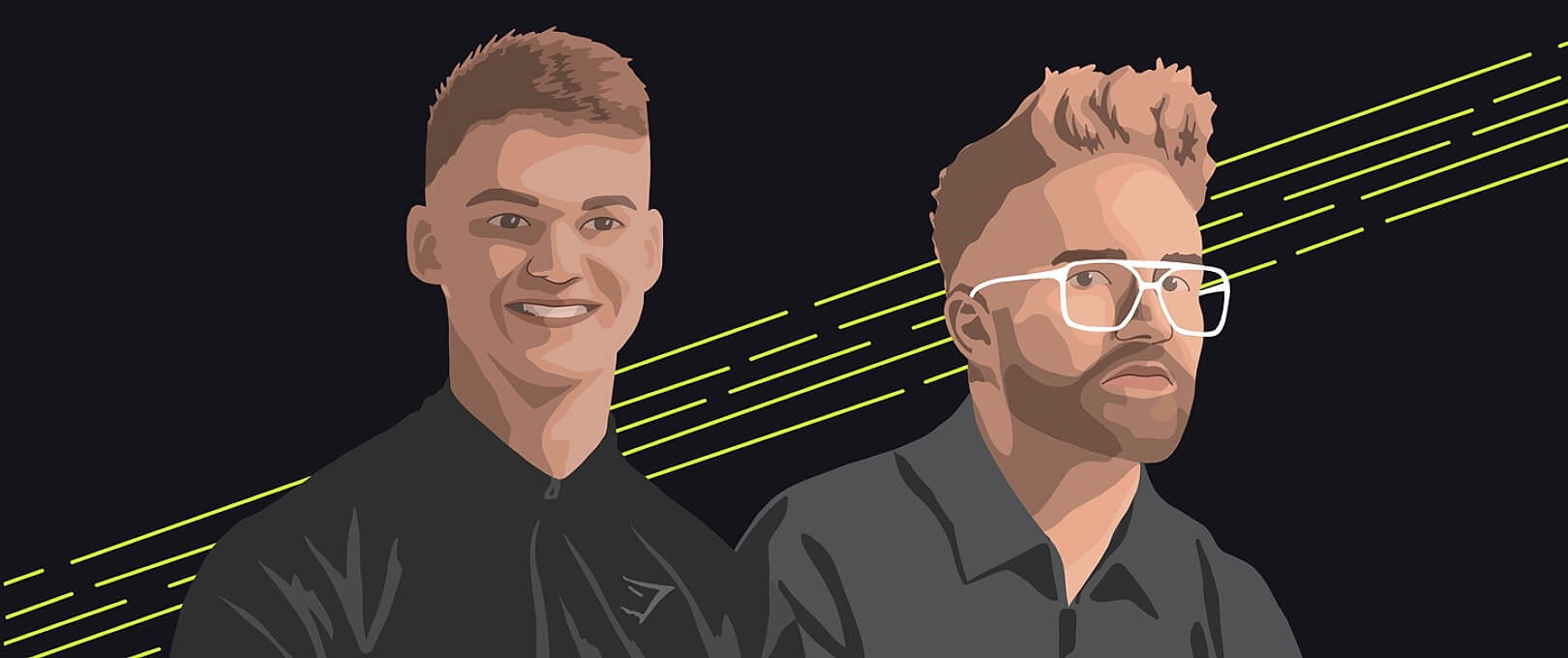Editor's Note: This post was updated August 2020 for currency.
Noel Mack has a line he likes from the Irish prime minister. “In years to come,” Leo Varadkar remarked inhis St. Patrick’s Day address, “let them say of us: When things were at their worst,wewere at our best.”
If it is not a rallying cry fit for the entire world, it certainly has become one for Gymshark. Saying Gymshark sells workout clothes is a little like saying McDonald’s sells ground beef, but even the soaring English brand, whichreached a $1 billion valuationon the shoulders of its young, intensely passionate customer base, is not immune to the greater global crisis around it.
从他们的家庭办公室在英国,麦克(图片d above, right), Gymshark’s chief brand officer, and Ben Francis, Gymshark’s founder and chief marketing officer, discuss the risks of getting brand communication wrong at a time like this, what the tail of COVID-19 may mean for Gymshark’s future retail ambitions, and how the key to good community engagement may be reactive, not proactive. “Me and Ben aren’t genius marketers,” Mack says. “We're just good listeners. We listen to the audience and act on what we think they want. That's it.”
(This interview has been edited and condensed for clarity.)
Let's start with one for Ben. When news of the coronavirus began to intensify, at what point did you start to think, "Hey, this is something we really need to start preparing for as a business?"
Francis:We're talking three weeks ago now, which seems like a lot longer than probably what it actually was. The week prior to the U.K. going into lockdown, we made the decision that the vast majority of Gymshark staff were going to work from home.
The reason was because we thought this thing isn't going to go away anytime soon. It was at that point we knew that it would be more of a marathon than it would be a sprint.
Noel, what were the considerations Gymshark had to make from a brand perspective when deciding what an appropriate response would be for the company?
Mack:The first one was: What are the wants and needs of our consumer now? Because everything we knew about our consumer—what problems they are facing right now, what their health regime looked like, where they spend their time, how they spend their money—all of that just completely changed.
So then the first port of call was to do an assessment on what's changed about our consumer. From there, we get into figuring out all these different initiatives that we can do to try and help them out.
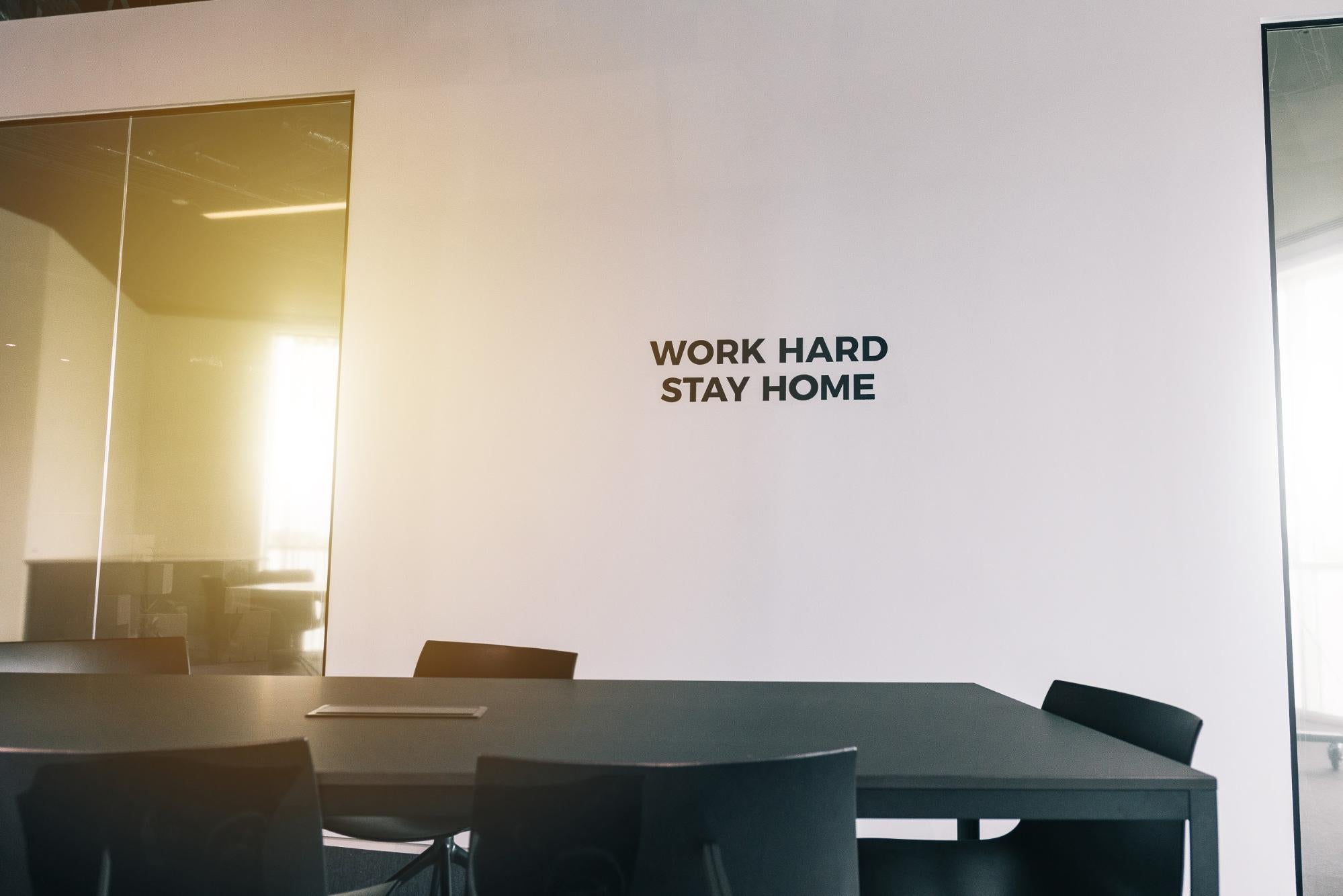
This has been a time of change for Gymshark. On Mar. 16, you asked all your office staff to begin working from home. The next day, Mar. 17, youclosed your London pop-up store, which had only been open a little more than half of its planned four-week stay in Covent Garden.
What other things that Gymshark had planned has the company had to pivot or alter— either because of operational concerns, safety concerns, or simply the message that it sent needed to be reevaluated in some form given this new cultural reality?
Francis:In terms of pivoting and changing, obviously the vast majority of our content that we were putting out there was generally gym-focused content. That doesn't really make sense when the vast majority of gyms are closed. So we did a switch in terms of pushing out content that was much more relevant to people working out from home.
We also did thePT (personal trainer) live stream. So [while] on the one hand we knew that the consumer wouldn't be able to go to the gym and would be working out from home a lot more, we also realized that PTs, which are the backbone of the fitness industry, would essentially struggle to do their day-to-day jobs.
So we did alive stream on Facebookwhere PTs can stream their workouts at home to millions of Gymshark fans. And then Gymshark will pay them an hourly rate to do that. We have the two-pronged effect of supporting the community by staying mentally and physically fit, but also supporting PTs financially, as well.
Mack:There were also a few other little roadblocks we hit, which we had some fun with in a time that is obviously not exactly fun for most people.
But it's stuff like, we couldn't get models or photographers in the studio to shoot [website] pictures because they [would be] getting in contact with each other and we're on lockdown. We've come up with a super innovative way of getting our ecommerce pictures on the website. I don't want to ruin the surprise, so let me just leave you hanging on that, and in a few weeks you'll get to see how we got around the problem of not being able to shoot in our studio.
Engaging your community has been, I'm sure, top of mind for Gymshark. Noel, what does the Gymshark brand need to be about right now?
Mack:I think it's changing literally day-by-day. At first, the primary concern for the community was like, "Oh, man. I can't hit the gym, so how else can I get my workouts in?" So it was like, how can we help them to supplement those bicep curls [by using] stuff they have around the house?
one daypic.twitter.com/EUBsmLBMJL
— Homeshark (@Gymshark)April 6, 2020
But then a friend of a friend was furloughed, as we call it in the U.K. And all of a sudden the conversation changes from a physical health challenge into a mental health challenge. So what the Gymshark brand needs to be about right now is that resource for health in general, and a place you can go to hang out with the community, receive advice, and get help on that physical health side, which we've always been about, but right now also on that mental health side. [For] people who have got genuine concerns about bills, mortgage, family, health in general.
Let's talk a bit about sensitivities and tone for a brand right now. There's thisnew report from Edelman, the major global public relations firm, and they found 71% of consumers said now that if “they perceive that a brand is putting profit over people, they will lose trust in that brand forever."
作为truthfully as you can be, have you felt a pressure that Gymshark may be judged by how it publicly responds to a crisis like this?
Francis:I wouldn't say that we've felt a massive pressure, to be honest. I think we're just doing what we think is right and right by the community, right by our staff, and making sure that, to Noel's point, everyone's mental and physical health is prioritized above all. I certainly haven't felt a pressure. I think as long as we're doing the right thing, which I know we are, I'm super comfortable with the decisions we've made.
Mack:I think Ben's pretty spot on there. The pressure you referred to [is] almost pressure like, "Oh, are people going to try and trip us up or call us out?" That's not the pressure I've felt. The pressure I've felt from the beginning of this was more how we will be remembered. The decisions we are making now massively affect how we're remembered.
I want to make sure every step we take is perfect, because we'll be remembered long after coronavirus based on the decisions we make right now. The [prime minister] of Ireland (Varadkar, pictured below) said a thing, which I loved, very early on in all of this.He said, "Let them say, when times were at their worst,wewere our best." And I think me, Ben, and the rest of the board at Gymshark had that in our heads with every single decision that we've made throughout this. We want to make sure that people are saying that about us once all this is over.
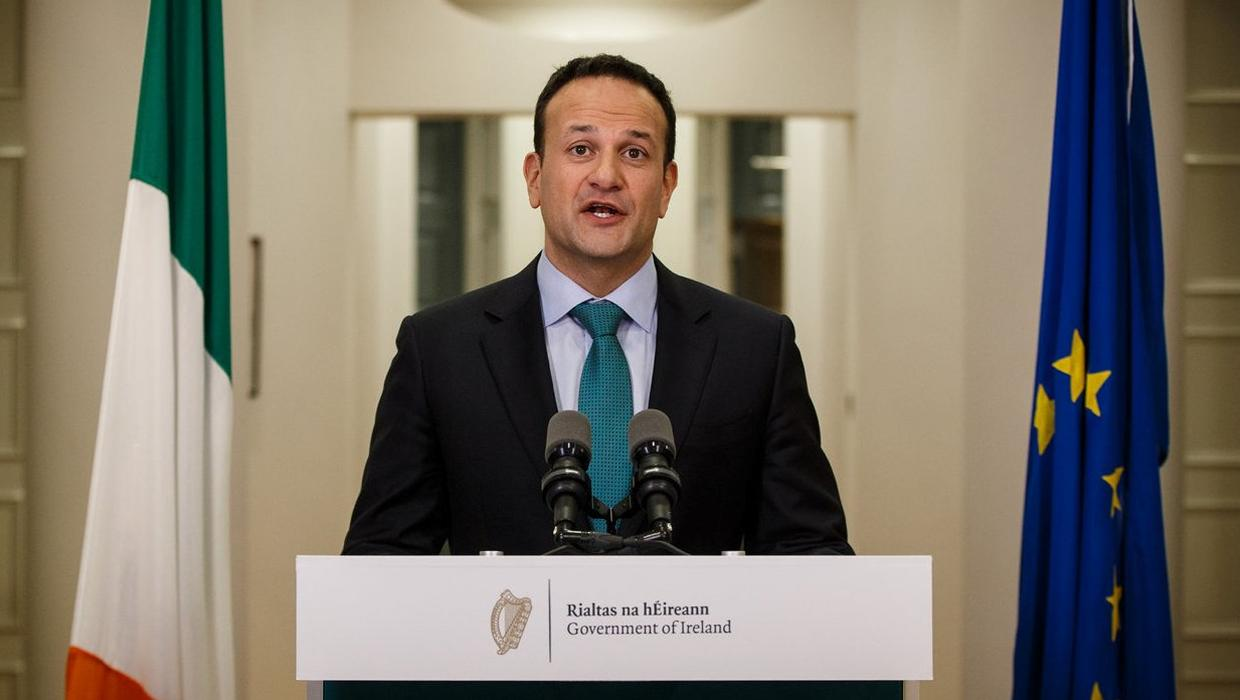
Gymshark is still a business—the doors are still open. What are the most important considerations a brand must have right now when going about the business of actually selling product?
Francis:When you're talking about the commercial side of selling product, let's not be pushing product that is irrelevant right now. Let's be pushing product that is going to support people during this unprecedented time.
So that's what we're doing, [promoting] home workout equipment, the stuff that you're going to wear when you go on a run, the stuff that you're going to wear when you're lounging around the house, rather than the more hardcore product that's more relevant to the person that [was] going to be at the gym deadlifting, say, six months ago. We're just trying to make the best decisions that are most relevant to now.
Noel, what are the risks here for a brand to not get this moment right—to be tone deaf or not sensitive enough to what's going on in the world?
Mack:[The risks come] after this, when next time you're trying to make a promise to your community or to your people about a product. It's like:Should we believe you?I see all the time these reports about consumers—especially in the sort of demographic that we market to, the millennial and the Gen Z—that they're much more likely to align with brands whose values they see themselves in.
There's never been a better time probably, in our lifetimes anyway, for a brand to really show what its values are—to stand up now and be counted and say, “This is what we stand for.” I can hand on heart say that Gymshark has absolutely done that. Everything we stand for, our values ring true in everything we've done over the past three weeks.
I've been quite shocked to see how many very big brands haven't followed suit, and [have] done a similar kind of thing and appear to be, like you said earlier, putting profit before people and just trying to sort of weather the storm. Right now, I think they could be gaining more customers now than ever.
There's an example here in the U.K. Pret a Manger was the first tocome out and say, "Every single NHS (National Health Service) worker, your hot drinks are on us." I know next time I'm walking down theHigh Street—and there's Starbucks and there'sCosta Coffeeand there's whatever else—that if I see a Pret, I'm giving Pret my money 100% because of what they did when times were hard for our country.
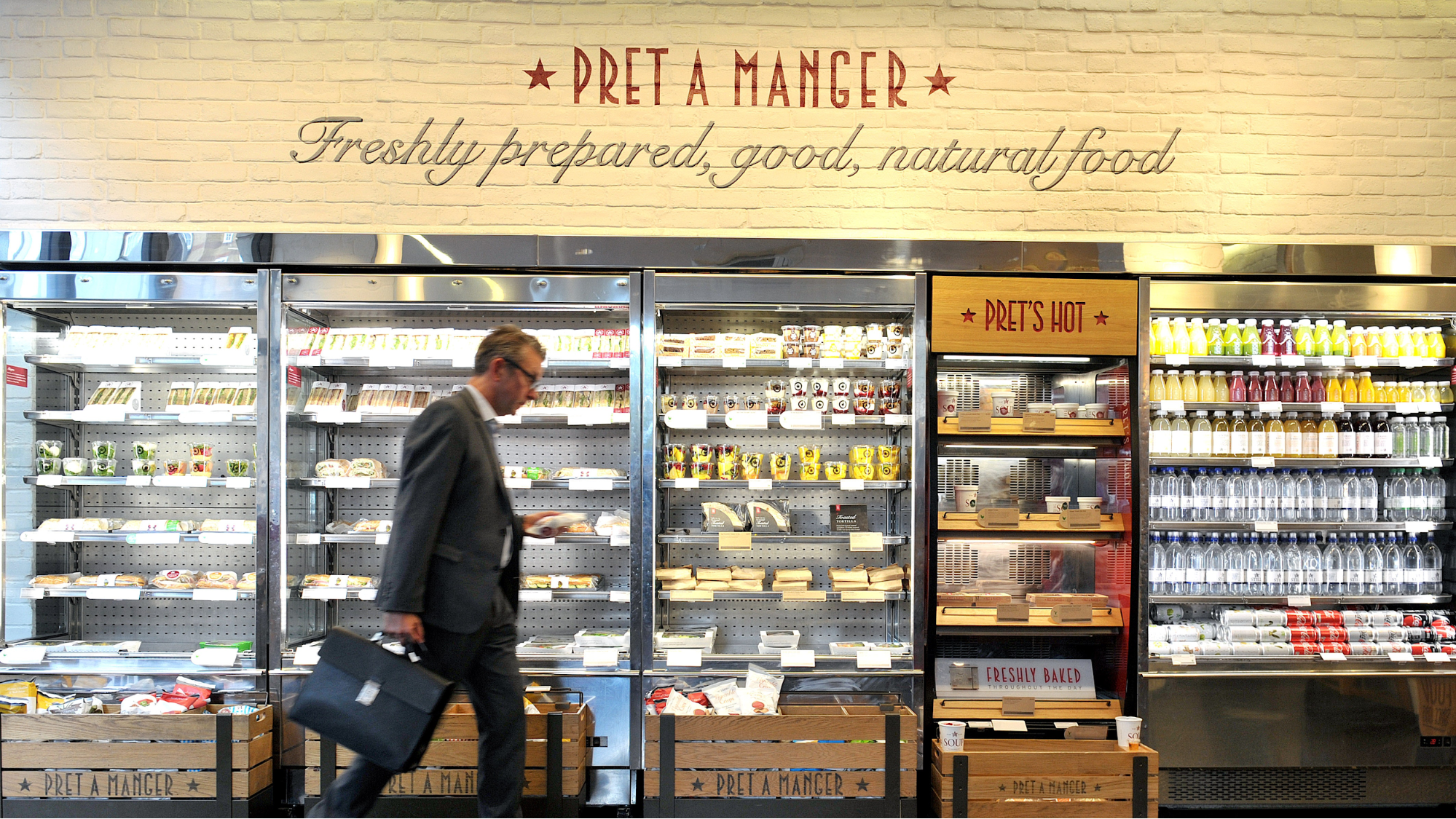
The inverse to that would be: Have either of you noticed other brand strategies right now that have made you say, "We definitely can't do that"?
Mack:Yeah, absolutely.
Can you give an example of what they did wrong?
Mack:I'm still seeing hardcore performance marketing going on.
FrancIs:There were certain brands that were putting the price of necessities up, which I think at a time like this is the complete wrong thing to do. We're not going to say any names, but there are brands that have certainly taken advantage of the situation and moved their prices around. I just think that's the wrong thing to do at a time like this.
Are there opportunities here to actually build community, to build a larger customer base, during this time?
Mack:Absolutely. The thing I mentioned—I didn't consider myself a Pret a Manger coffee fan before this, but they're getting my money now. And it sounds stupid to have that sort of brand loyalty to a coffee house. Coffee is coffee, at the end of the day.
But even though the product is exactly the same, and the other places might have a lower cost on their coffee, I support what those guys are doing. So I'll 100% go there. I might try and find them on Instagram after this. I'm definitely in the Pret community now.
What are you finding consumers are hungry for right now?
Francis:Definitely content. I think people are spending a lot of time on their computers and phones now that they're at home. In our particular case, people want support, whether it's mental support or physical support in the shape of the streams for home workouts that we've been offering. The growth in people searching for and doing home workouts, and what equipment [they need] to support that, has just absolutely blown up overnight.
Mack:They want some semblance of normality, as well, and maybe some positivity. We noticed that everything positive or jovial that we've done so far has done really well. Wechanged our name on Twitter to “Homeshark.”And I think that's our most-engaged post ever on Instagram, Ben?
Francis:Mmm-hmm. Yeah.
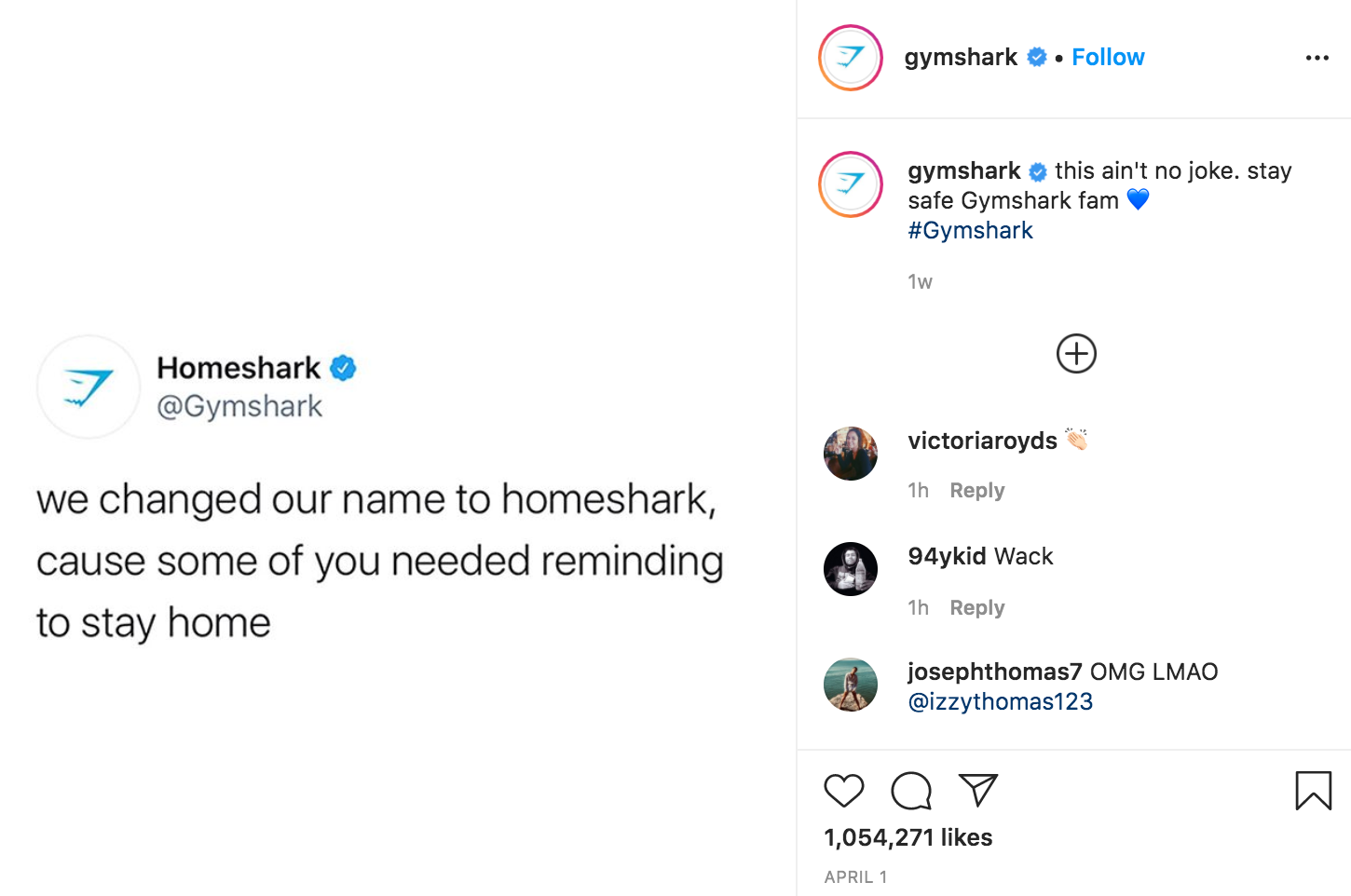
Mack:So that shows that sort of silly little thing has worked so well. Right now we've got a concept in the works called the Happy Hour, where at a certain time every single day we just give out good news. We're even trying to work with some local comedians and stuff like that to add even more smiles to the situation, because right now there isn't a huge amount to be smiling about.
Gymshark has been quite public that you are active listeners to customer feedback. What has been the most striking piece of customer feedback you've received during this time? And what might you actually do with it?
Mack:I'm not sure if it's customer feedback or if it's just the feedback from the wider world, [but] when we put thePT thinglive, that absolutely took off.
Now, there are companies out there in the world who have definitely donated more from a purely financial point of view than we have. But ours was born out of a different thing. It wasn't just, "Here's some cash. Please can we have some positive PR?" It's about keeping the personal training community alive.
How we then utilize that is: How can we do more of this? Forget just [streaming workouts] on Facebook. Let's simulcast onto YouTube, as well. And Twitch. Let's get on as many platforms as possible. The customer feedback is just sort of shaping our journey. They guide the way for us, really. We're just doing what they tell us to do.
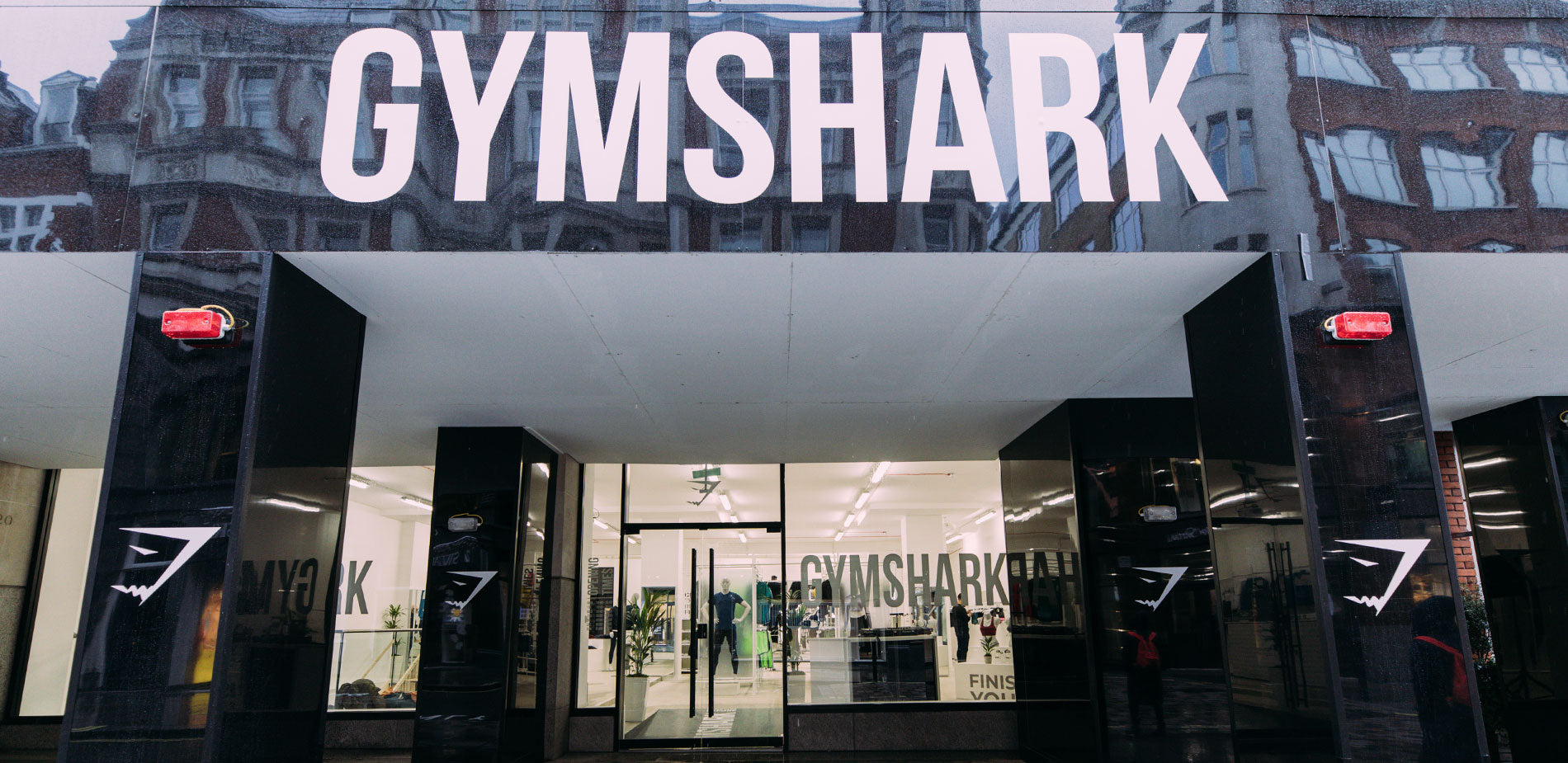
We mentioned earlier your London pop-up store, which was set to run the entire month of March. Gymshark is famous for its pop-ups, but of course the flip side to that is you do not have much of a permanent retail presence at all just yet.
In fact, for a brand of Gymshark's size, earningsome $300 million last year, there has to be only a handful of companies in the entire world doing those kinds of sales numbers without a permanent retail presence. What has this crisis told you about Gymshark's retail strategy moving forward?
Francis:Obviously, we closed the [London] store the second that we felt like there was any potential risk to staff or customers. The first two weeks were just incredibly successful. So, so, so, so successful. I think it just blew everyone away. But, like I said, we had to close it immediately.
The one thing I would say is: As soon as it is safe to do so, we're going to be right back out there, and we're going to be going super hard with retail and IRL meet-ups and events. Just because I think it's going to go the other way. People will have spent so much time indoors, and they feel like they'll have missed out on so much this summer, that we want to do everything we can to get out there and support everyone in person.
Which of these two statements is closer to the truth? One: Gymshark will still have pop-ups but may, when this crisis is over, continue to pursue a more permanent retail presence.
Or two: If anything, this crisis has kind of proven that retail and everything that comes with it is a risky proposition, and Gymshark is going to continue to be nimble with how it approaches retail commitments.
Francis:I think definitely number one. Gymshark is going to pursue and consider and think about longer-term offline activities. What it looks like at the moment, I'm not sure, but it will be built in a way where we're not relying on it, going back to what you said in number two.
In the short-term, how is Gymshark going to try to replicate the effect it gets from those pop-up stores—either online or through some other medium now that retail is on hold for the foreseeable future?
Mack:There was a huge thing on the front of our London pop-up store. It said, "From URL to IRL.” Literally today, I've just been on a call with all our creatives talking about our first-ever digital festival, which the tagline would be, "From IRL to URL." In other words, we have to go back because of coronavirus.
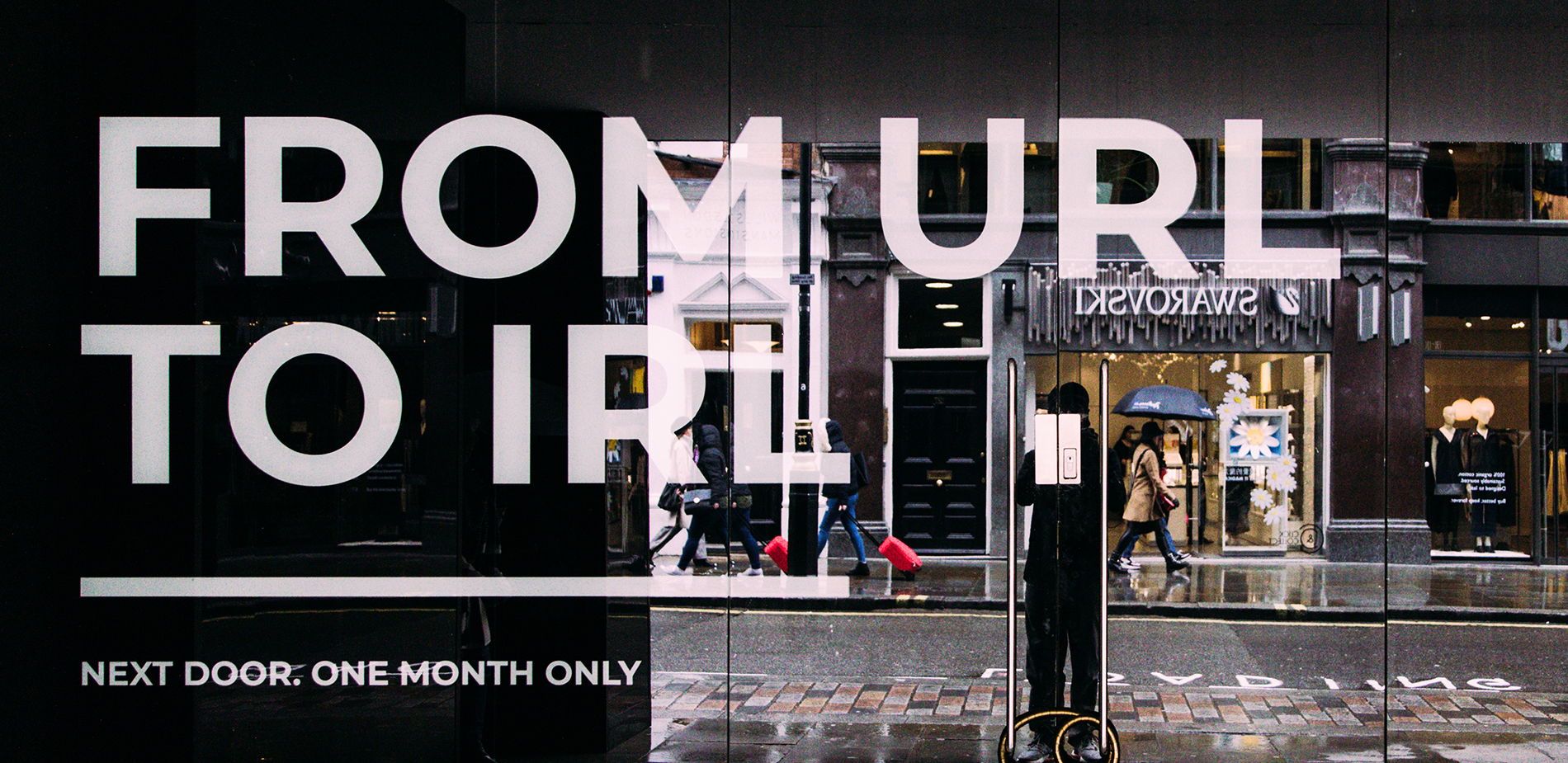
There were all these hilarious ideas running around today. Like, you know when you go to a festival, and you've got the map and you've got the rock-and-roll stage or the hip-hop stage or whatever else? [With a digital festival], there would be a map, but it's just a floor plan of somebody's house. It's like: the living room, the back garden, and it's talking about the different workouts you could do in each one of them. It's that kind of thing where there's going to be a constant thing happening all day. We'll have artists, acts, different fitness things. We're seeing right now if there is a way to pivot and do that event-style thing online.
And trust me: When this is finished, our event [team] will be like a bull out of the gates, where we'll hit events harder than you've ever seen before.
Gymshark is a global brand, sold all over the planet. But, Ben, at least you'vebeen on recordsaying that this company still has greater ambition to be an even larger player on the world stage.
What has this crisis taught you about going global? Are there things like supply chain considerations that you've been brought to rethink as Gymshark continues to push outward?
Francis:From a business perspective, I think it's really important that we keep a clear runway of cash, that we remain really agile. Again, the amount that Gymshark has pivoted in what it’s doing now compared to what it would be doing if COVID-19 wasn't happening is absolutely huge.
From a risk mitigation perspective, [there are] little things, like making sure that every product can be made in two different parts of the world. There is a list as long as my arm of lessons that we've learned from this. I think it's proved the strength of our business model, but also I think we'll come out of it even stronger, as well.
The other interesting thing is having a truly different perspective dependent on what region that we're pushing out to. Our website is obviously a global website, but when there's a global pandemic, the situation is very different maybe in Hong Kong three weeks ago [compared] to what it was in California, for example. It's about having the awareness as a business to make sure that we know what's happening in each region, each part of the world. And we're acting accordingly to that, not just [with] an English set of eyes.
What is the key to Gymshark maintaining and engaging its community as this crisis continues to drag on?
Mack:我本不是天才商人。ob欧宝娱乐app下载地址我们只是咕d listeners. We listen to the audience and act on what we think they want. That's it.
